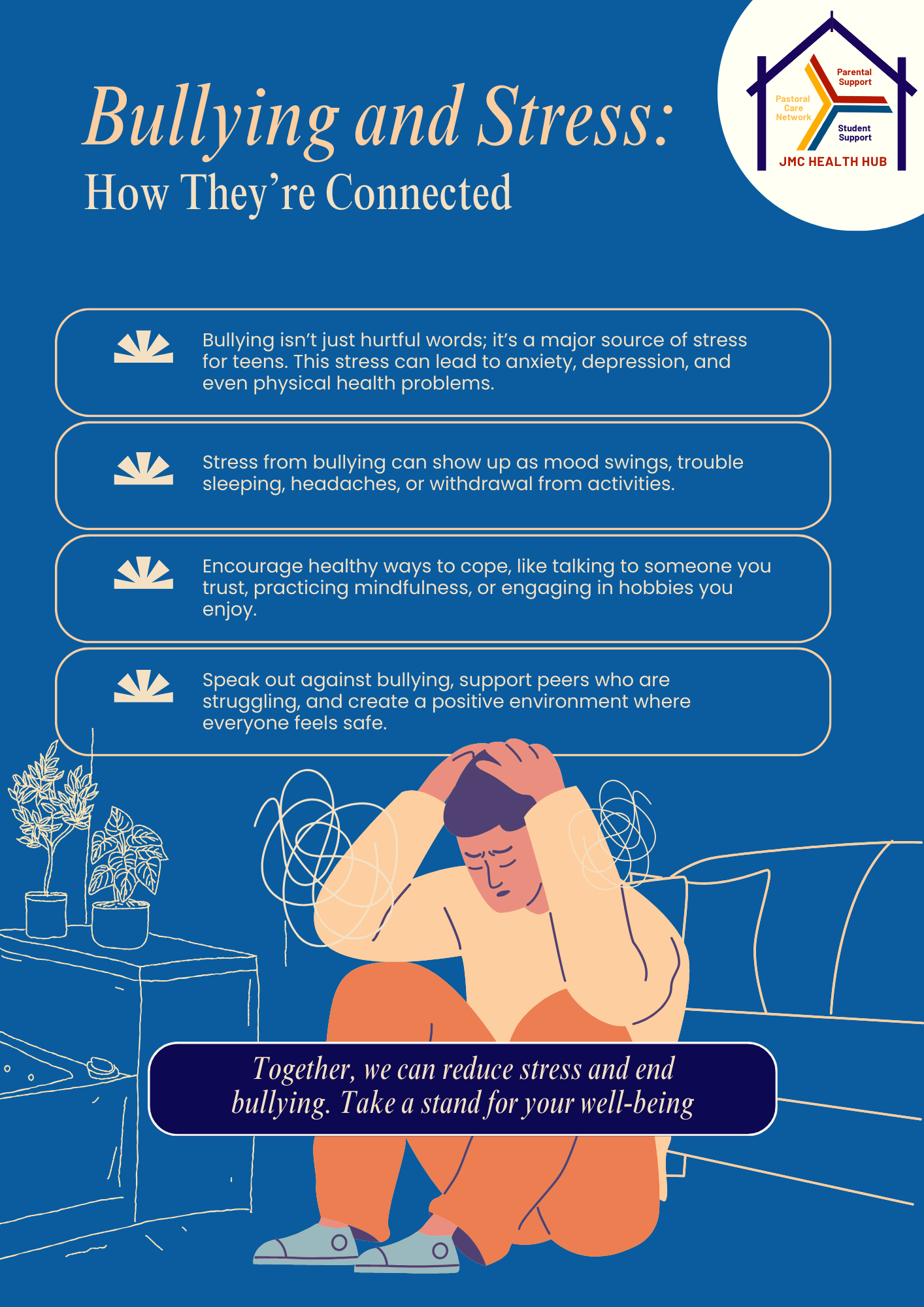Taking a Stand Against Bullying: Awareness, Prevention, and Action. At John McGlashan College, we are committed to fostering a school culture where all students feel safe, valued, and respected. Bullying has no place in our community. It is essential that we work together to recognise, prevent, and address bullying in all its forms.
What is Bullying?
Bullying is repeated, unwanted behaviour that involves a real or perceived power imbalance. It can take many forms, including:
-
Physical – Hitting, pushing, or acts of physical aggression
-
Verbal – Name-calling, teasing, or threats
-
Social – Exclusion, spreading rumours, or damaging relationships
- Online – Cyberbullying through harmful messages, posts, or images shared digitally
Understanding the different types of bullying is key to taking proactive steps to prevent and respond effectively.
The Impact of Bullying
Bullying can have serious consequences for everyone involved:
-
For victims: Increased anxiety, depression, low self-esteem, and physical health issues
- For perpetrators: Without intervention, bullying behaviour may persist into adulthood with negative consequences
- For witnesses: Observing bullying can cause distress and a sense of helplessness
By addressing bullying early, we can reduce harm and create a more supportive school environment.
Preventing Bullying: Building a Culture of Respect
Preventing bullying requires a collective effort from students, staff, and whānau. Key strategies include:
-
Promoting inclusivity – Encouraging respect, understanding, and positive relationships
- Educating about bullying – Raising awareness about its impact and the importance of standing up for others
- Encouraging communication – Keeping open lines of communication between students, teachers, and parents
Everyone has a role to play in creating a safe and supportive school environment.
Responding to Bullying: Taking Action
If you or someone you know is experiencing bullying, it’s important to act:
-
Avoid retaliation – Responding aggressively may escalate the situation
- Report the behaviour – Speak to a trusted adult, teacher, dean, or school counsellor
- Document incidents – Keep records of messages, screenshots, or other evidence, particularly in cases of cyberbullying
- Offer support – Show kindness and stand by those who are being targeted
Seeking Help and Support
No one should face bullying alone. Support is available from:
-
Teachers, deans, and parents – Trusted adults who can provide guidance and advocate for students
- School counsellors – Professional support to navigate emotional challenges
- Helplines and organisations – Access external support, such as Bullying-Free NZ and Netsafe
Speaking up is a sign of strength, not weakness. If you need support, reach out.
Working Together for a Bully-Free School
Bullying is a challenge we can overcome together. By raising awareness, taking preventative action, and supporting those affected, we can create a school community where every student feels safe, valued, and empowered.
For further guidance, visit these trusted resources:
- Bullying-Free NZ – Tools and strategies for addressing bullying in schools and communities
- Netsafe – Expert advice on dealing with online harassment and cyberbullying
If you have concerns or need assistance, please speak to a teacher, dean, or member of our pastoral care team.
Need more help?


 Open Event Registration - Interested in enrolling?
Open Event Registration - Interested in enrolling? Employment opportunities - click if you're interested in working at McGlashan.
Employment opportunities - click if you're interested in working at McGlashan.